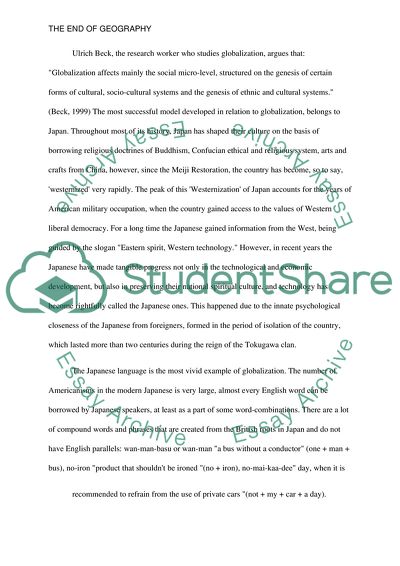Cite this document
(“End of geography Assignment Example | Topics and Well Written Essays - 1750 words”, n.d.)
Retrieved from https://studentshare.org/geography/1661959-end-of-geography
Retrieved from https://studentshare.org/geography/1661959-end-of-geography
(End of Geography Assignment Example | Topics and Well Written Essays - 1750 Words)
https://studentshare.org/geography/1661959-end-of-geography.
https://studentshare.org/geography/1661959-end-of-geography.
“End of Geography Assignment Example | Topics and Well Written Essays - 1750 Words”, n.d. https://studentshare.org/geography/1661959-end-of-geography.


